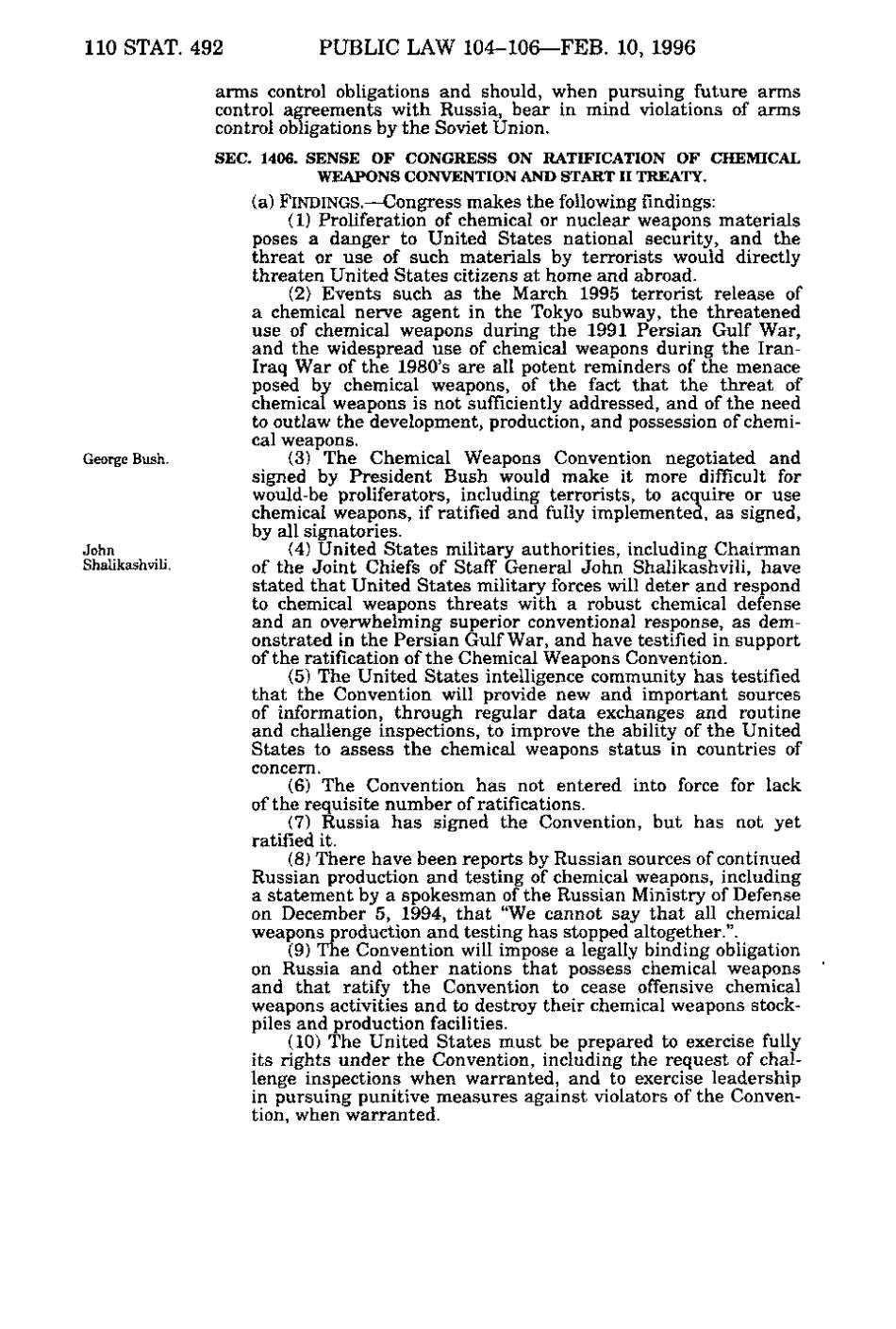110 STAT. 492 PUBLIC LAW 104-106—FEB. 10, 1996 arms control obligations and should, when pursuing future arms control agreements with Russia, bear in mind violations of arms control obligations by the Soviet Union. SEC. 1406. SENSE OF CONGRESS ON RATIFICATION OF CHEMICAL WEAPONS CONVENTION AND START II TREATY. (a) FINDINGS.— Congress makes the following findings: (1) Proliferation of chemical or nuclear weapons materials poses a danger to United States national security, and the threat or use of such materials by terrorists would directly threaten United States citizens at home and abroad. (2) Events such as the March 1995 terrorist release of a chemical nerve agent in the Tokyo subway, the threatened use of chemical weapons during the 1991 Persian Gulf War, and the widespread use of chemical weapons during the Iran- Iraq War of the 1980's are all potent reminders of the menace posed by chemical weapons, of the fact that the threat of chemical weapons is not sufficiently addressed, and of the need to outlaw the development, production, and possession of chemical weapons. George Bush. (3) The Chemical Weapons Convention negotiated and signed by President Bush would make it more difficult for would-be proliferators, including terrorists, to acquire or use chemical weapons, if ratified and fully implemented, as signed, by all signatories. John (4) tJnited States military authorities, including Chairman ShaUkashvUi. of the Joint Chiefs of Staff General John Shalikashvili, have stated that United States military forces will deter and respond to chemical weapons threats with a robust chemical defense and an overwhelming superior conventional response, as demonstrated in the Persian Gulf War, and have testified in support of the ratification of the Chemical Weapons Convention. (5) The United States intelligence community has testified that the Convention will provide new and important sources of information, through regular data exchanges and routine and challenge inspections, to improve the ability of the United States to assess the chemical weapons status in countries of concern. (6) The Convention has not entered into force for lack of the requisite number of ratifications. (7) Russia has signed the Convention, but has not yet ratified it. (8) There have been reports by Russian sources of continued Russian production and testing of chemical weapons, including a statement by a spokesman of the Russian Ministry of Defense on December 5, 1994, that "We cannot say that all chemical weapons production and testing has stopped altogether.". (9) The Convention will impose a legally binding obligation on Russia and other nations that possess chemical weapons and that ratify the Convention to cease offensive chemical weapons activities and to destroy their chemical weapons stockpiles and production facilities. (10) The United States must be prepared to exercise fully its rights under the Convention, including the request of challenge inspections when warranted, and to exercise leadership in pursuing punitive measures against violators of the Convention, when warranted.
�
